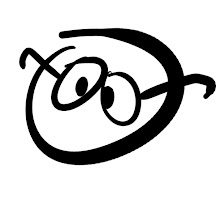El arte no satisface forzosamente la necesidad de respirar (pero quizá pueda intentarlo y acaso hasta sirva para eso si se plantea).
El arte no satisface forzosamente la necesidad de beber agua (pero quizá pueda intentarlo y acaso hasta sirva para eso si se plantea).
El arte no satisface forzosamente la necesidad de alimentarnos (pero quizá pueda intentarlo y acaso hasta sirva para eso si se plantea).
El arte no satisface forzosamente la necesidad de dormir (pero quizá pueda intentarlo y acaso hasta sirva para eso si se plantea).
El arte no satisface forzosamente la necesidad de eliminar los desechos corporales (pero quizá pueda intentarlo y acaso hasta sirva para eso si se plantea).
El arte no satisface forzosamente la necesidad de evitar el dolor físico (pero quizá pueda intentarlo y acaso hasta sirva para eso si se plantea).
El arte no satisface forzosamente la necesidad de mantener la temperatura corporal (pero quizá pueda intentarlo y acaso hasta sirva para eso si se plantea).
El arte no satisface forzosamente la necesidad de sostener relaciones sexuales (pero quizá pueda intentarlo y acaso hasta sirva para eso si se plantea).
El arte no satisface forzosamente la necesidad de asegurar la integridad del propio cuerpo (pero quizá pueda intentarlo y acaso hasta sirva para eso si se plantea).
El arte no satisface forzosamente la necesidad de salud (asegurar el buen funcionamiento del cuerpo) (pero quizá pueda intentarlo y acaso hasta sirva para eso si se plantea).
El arte no satisface forzosamente la necesidad de vivienda (pero quizá pueda intentarlo y acaso hasta sirva para eso si se plantea).
El arte no satisface forzosamente la necesidad de tener relaciones con amistades, pareja, colegas o familia (pero quizá pueda intentarlo y acaso hasta sirva para eso si se plantea).
El arte no sirve forzosamente para trasladarnos por la ciudad (pero quizá pueda intentarlo y acaso hasta sirva para eso si se plantea).
El arte no sirve forzosamente para lavar trastes (pero quizá pueda intentarlo y acaso hasta sirva para eso si se plantea).
El arte no sirve forzosamente para lavar ropa (pero quizá pueda intentarlo y acaso hasta sirva para eso si se plantea).
El arte no sirve forzosamente para barrer (pero quizá pueda intentarlo y acaso hasta sirva para eso si se plantea).
El arte no sirve forzosamente para realizar investigaciones de mecánica cuántica (pero quizá pueda intentarlo y acaso hasta sirva para eso si se plantea).
El arte no sirve forzosamente para comprar víveres (pero quizá pueda intentarlo y acaso hasta sirva para eso si se plantea).
El arte no sirve forzosamente para derrocar un régimen político (pero quizá pueda intentarlo y acaso hasta sirva para eso si se plantea).
Tareas para las que no sirve mucho el arte que más me importa:
Reconstruir el tejido social.
Sanar.
Defender una tesis.
Emancipar a nadie.
Combatir un régimen.
Hacer activismo.
Ejercer autoridad moral.
Educar.
Proponer una moraleja.
Dar un consuelo directo.
Practicar ningún tipo de espiritualidad.
Seguir una línea religiosa.
Solucionar problemas prácticos urgentes.
Solucionar problemas prácticos no urgentes.
Alimentar.
Defender a un político.
Plegarse incondicionalmente a las reglas de una tradición.
Romper radicalmente con las reglas de una tradición.
Buscar congruencia.
Conocer la realidad de manera teóricamente comprobable.
Percibir "realidades" sobrenaturales.
Ofrecer una terapia directa.
Informar de manera fidedigna.
Proponer una utopía.
Estructurar una identidad.
Encabezar a un colectivo.
Combatir delitos o crímenes.
Cultivar hortalizas.
Promover una campaña de difusión para el respeto de los derechos humanos.
Hacer una revolución.
Apoyar una revolución.
Hacer la contrarrevolución.
Alfabetizar.
Proponer una guía ética para la transformación del país.
Proponer una articulación de potencias políticas.
Convocar al espacio público.







